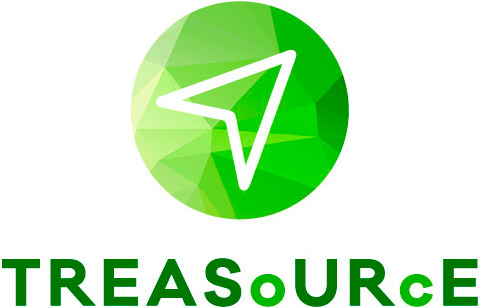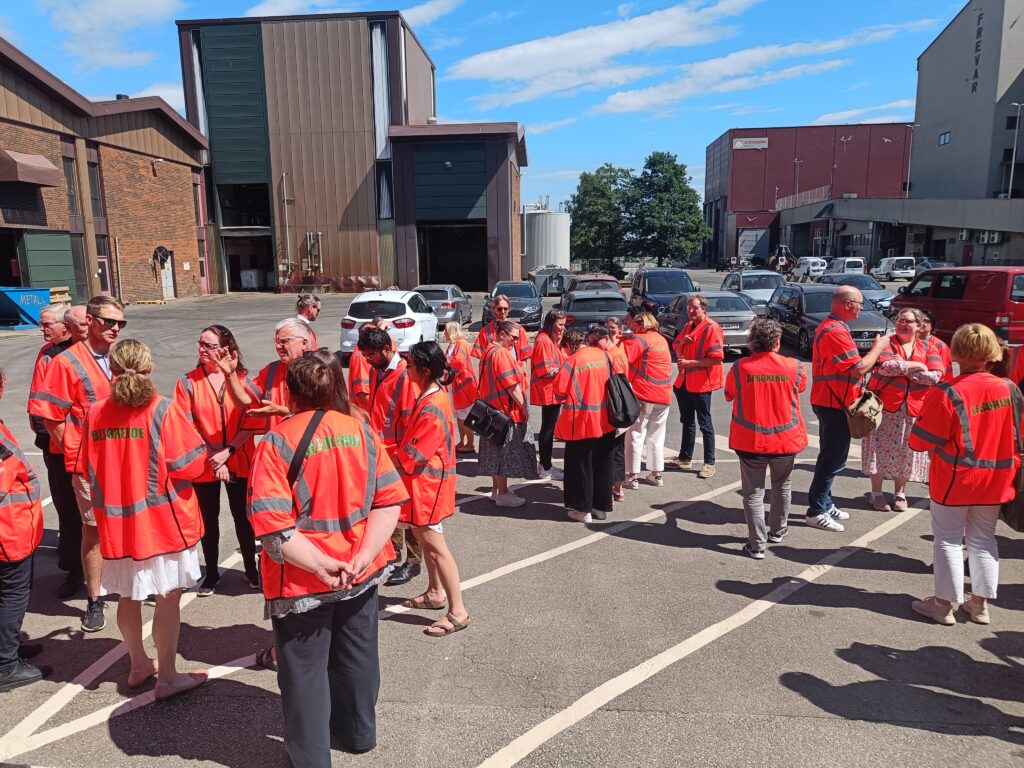To kick off the meeting and to get us all in the mood of circularity, our consortium leader Anna Tenhunen-Lunkka walked us through the R strategies to see who of the consortium is the most circular person. With several daily life examples of implementing circular strategies, including lending or buying second-hand clothes, repairing gardening tools or refusing to buy new items, the title finally went to Riina Kärki from MTK.
Insights from the panel discussion
After the icebreaker, we began the meeting with a panel discussion on systemic change: what is it and why is it challenging? The panellists were Suvi Holm from EcoFellows, Einari Kisel from TalTech, Anne-Christine Ritschkoff from VTT and Guri Bugge from Østfold.
The most recent example of such change was the pandemic, which forced us to abruptly change the way we work and live. However, it showed that change is possible when the motivation is there. Many people embraced the remote working lifestyle in such a way that it is the new normal nowadays.
It is true that changing our current ways of living isn’t easy. It requires moving out of our comfort zones, and people really love their comfort zones! To make the transition easier, we need to offer the alternatives and provide guidance and motivation for people to embrace the circular lifestyle. To make shifting towards circularity, in a word, easy.
This doesn’t just concern citizens; companies need to rethink their business models, municipalities and other organizations also need to rethink their operations and everybody needs to take heed of the changing legislation. In all honesty, circular economy can’t be achieved alone. We need to create opportunities for collaboration and increase understanding of different cultures and ways of life.
After the panel discussion, it was time to dive into the work packages and see where the WP teams are currently standing. The presentations sparked a lot of discussion and some of them were coupled with a dedicated workshop session to focus and co-create on specific issues, such as the forthcoming policy recommendations.
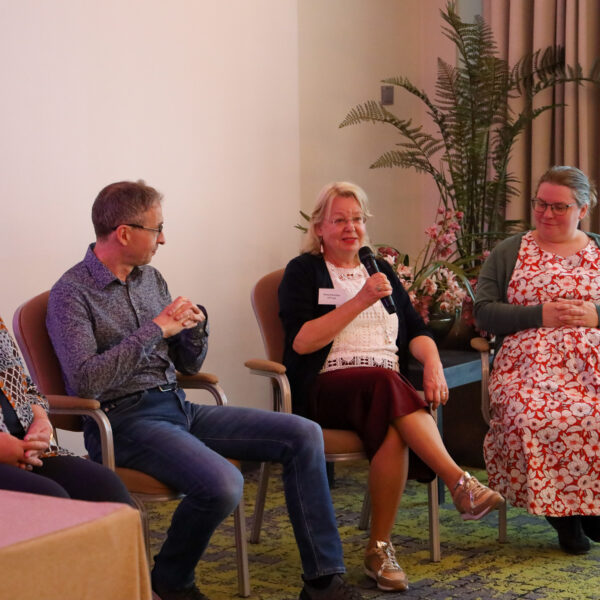
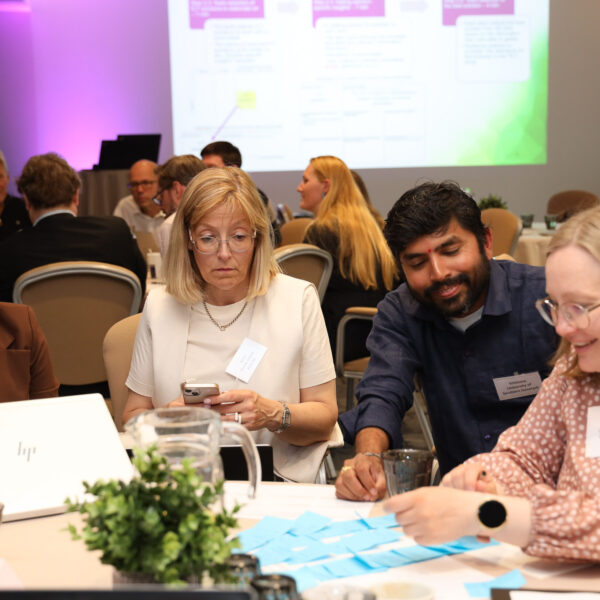
Inspiring site visits
The morning of the second meeting day was dedicated for a deep dive into the KVC work packages and discussions on how to further develop the demonstrations. The afternoon was spent on site visits. First, we gained interesting insights about how Estonia utilizes pyrolysis. This differs from the practice in the other countries present in the consortium, as in Estonia it is used in production of shale oil. Shale oil is considered a fossil fuel, and it is currently researched, how to utilize for example plastics as an additional material in the process.
The next stop was at the Eesti Pandipakend, which takes care of the recycling of the beverage packaging in Estonia. They collect and recycle glass, metal and plastic packaging with a deposit. We were also introduced to their innovation Panditops, which provides reusable tableware and cutlery for events to reduce waste. A separate washing line has been built to wash the reusable dishes. From 1st of January 2024, Estonia has introduced a new regulation requiring the use of reusable crockery at large public events. You can read more about the successful implementation of circular practices at mass events in Tallinn in this blog post.
The final day of the meeting consisted of a workshop to update the status of the project’s key exploitable results and a review of project management-related issues. While some of us were already on the way back home, a smaller group had the opportunity to visit a biogas plant in Maardu. The plant processes biowaste from a larger area in Estonia. There the group learned how biogas is produced from biowaste. Biowaste usually contains other types of waste that are mixed in the waste fraction. These are separated during the process and incinerated at a nearby heating plant. The heat from the plant is reused to enhance the biogas production. The visit was interesting and full of aroma!
Next time we’ll see each other virtually in December and the next live meeting is scheduled for summer 2025 in Tampere, Finland.
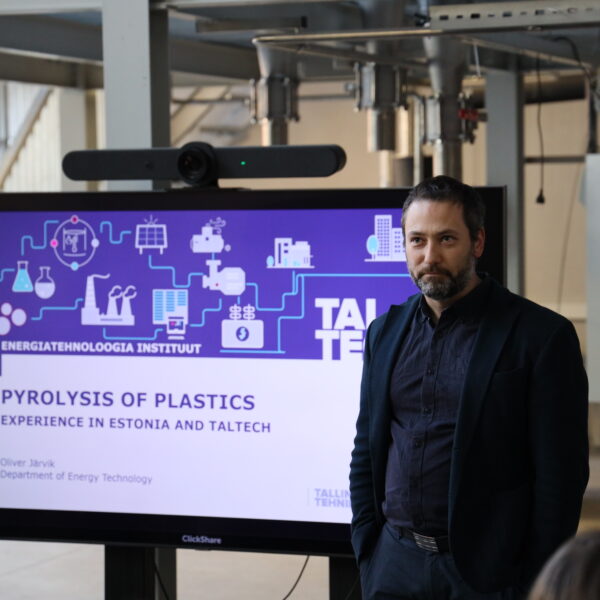
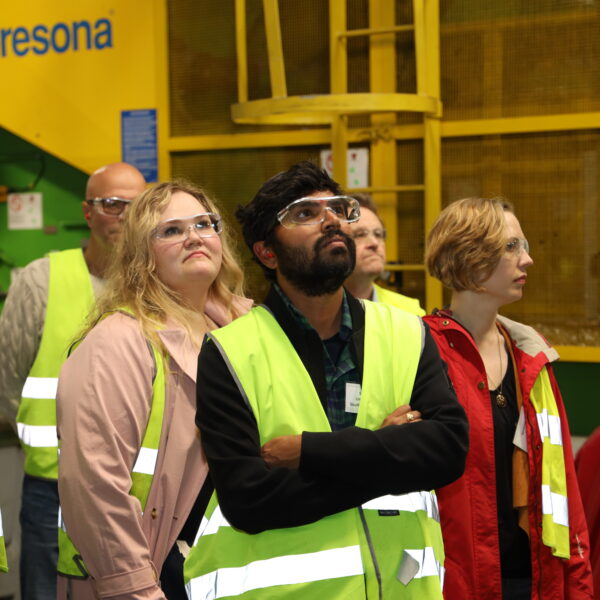
19.6.2024 | Nina Hurme (CLIC), nina.hurme@clicinnovation.fi
Find more news here.
